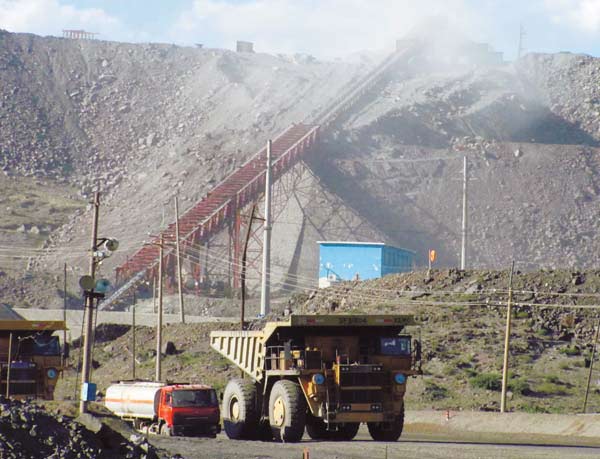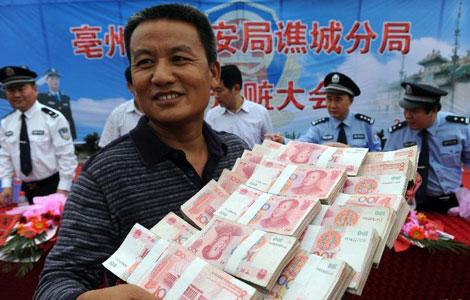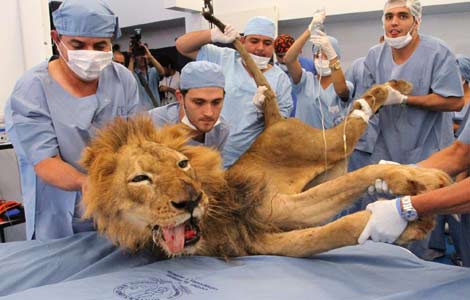China to keep rare earth supplies tight
Updated: 2011-09-16 07:46
By Zhou Yan (China Daily)
|
|||||||||||
A rare earth mine in Bayan Obo, Inner Mongolia autonomous region. WU CHANGQING / FOR CHINA DAILY
World's heavy reliance on China as leading source is not sustainable

BEIJING - Inner Mongolia Baotou Steel Rare-Earth Hi-Tech Holding Co, the nation's biggest rare earths producer, said on Thursday that short supplies of these valuable minerals represent an "irreversible" trend, a comment that could spark market speculation of further price rises.
China has no intention of remaining the world's major supplier of rare earths and will gradually shift focus to domestic demand, Li Zhong, vice-president of the company was quoted by Xinhua News Agency as saying on Thursday at a conference in Beijing.
The Inner Mongolia autonomous region-based company holds 1,719 metric tons of rare earth export quotas for 2011, making it one of the top exporters of the metals that are widely used in high-technology applications including iPhones and hybrid cars.
The total export quota for this year is 30,184 tons, little changed from 30,258 tons last year.
China, which supplies about 95 percent of the world's total consumption, has been tightening production and exports since 2009 as it seeks to regulate the industry and crack down on illegal mining and exports.
Top national officials in May announced higher taxes on rare earths and said that no new separation projects would be approved over the next five years.
Industry experts said that the world's heavy reliance on China for the metals since the 1990s could not be sustained, as high levels of mining activity had exacted an enormous environmental toll.
"China should not be the world's supply center for rare earths in the future. From the strategic point of view, it's better to encourage the diversification of global supplies," said Chen Zhanheng, director of the academic department of the Chinese Society of Rare Earths.
However, the country is under foreign pressure over tightening controls on the metals. European Union Trade Commissioner Karel De Gucht was quoted by Reuters as saying this week that the EU wanted higher quotas of rare earths from China and would seek more clarity from Beijing during economic meetings scheduled for October and December.
The World Trade Organization (WTO) ruled in July that China's export quotas and duties on some raw materials, including rare earths, were illegal and went against the nation's commitments when it joined the organization in 2001.
The ruling came after the WTO received complaints from the US, EU and Mexico.
Rare earth resources could be depleted very rapidly without quota restrictions, said Chen.
Thus, it was fair for China to limit overseas sales initially, while it sought to get the industry on a healthy track, Chen added. "It will benefit the world's economy in the long run."
Exports will continue to be cut because reserves have been depleted after years of over-production, said Liu Minda, an analyst at Huatai Securities Co.
China's restrictions on production have triggered a price surge, with some rare earths soaring more than sixfold so far this year.
Prices are expected to stay high for the rest of the year, said Li.
Hot Topics
Organ transplant bonds mother and son
Editor's Picks

|

|

|

|

|

|







